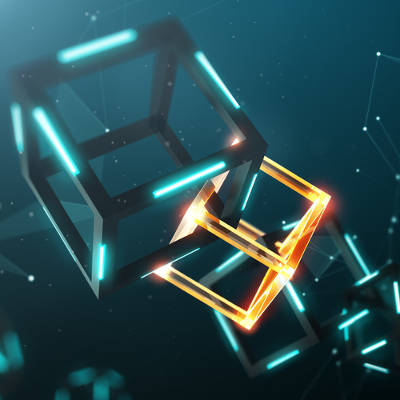
We often go into depth about technology, management, and other business-oriented topics, and occasionally we decide to talk about a technology that may not be all that familiar to people with the hope that a short primer on the subject will ultimately help our readers to become curious and do their own research to understand the technology better. With Bitcoin being a trending topic in the news, understanding what a blockchain is will help you understand how this technology will drive data security in the coming years.
First, What Is Bitcoin?
Bitcoin is a type of digital currency. Bitcoin doesn’t exist physically, such as coinage or paper money does, but instead exists in code form. The interesting thing about Bitcoin is how it’s generated. Users can utilize high-end computing hardware (even commercially available computer hardware) to “mine” for Bitcoin and simply invent the money. Granted, there is a limited supply of Bitcoin and generating even a small amount of Bitcoin requires a lot of computer resources and a lot of time. That said, Bitcoin has become a viable currency online for many online stores. At the time of writing this, a single Bitcoin is worth about $ 17,112 USD, compared to $ 27 back in 2009.
What is Blockchain?
A blockchain is exactly as the name suggests, a series of blocks that contain information, chained together to provide a reliable and secure accounting for whatever the blockchain is set up to measure. The technique of blockchaining originated in 1991 and was developed to timestamp documents to ensure they couldn’t be tampered with or altered. It has since been tabbed “The Internet of Value” since it functions as a form of database. The differences between traditional databases and a blockchain are numerous, however.
In a blockchain, the information that is shared is both confirmed and encrypted; and, distributed over a number of linked transactions; and, automatically replicated by each user that uses the blockchain, providing users of the chain a secure and tamper-proof ledger of secure activity. This activity can be exchanges in currency, cryptocurrency, medical records, shareholder records, etc.–any information that requires a itemized and uneditable database in which to relay information.
Uses of Blockchain
Blockchain technology has been described by industry professionals as the “new Internet”, but since a majority of people have never heard of it, we thought it would be good to provide some examples of technologies that would benefit from moving on from the centralized hosted technologies that we have today to distributed hosting like blockchain. Here are a few:
Blockchain and Bitcoin
With Bitcoin being a hot-button issue in financial circles of late; and, with other cryptocurrencies popping up all the time, you can see how blockchain technology creates a construct in which a digital currency could thrive. Since there will never be more than 21 million Bitcoins in circulation, people that choose to “mine” the Internet for this cryptocurrency do so with the understanding that today it would take a hundred years or more to mine one single Bitcoin. This ceiling protects the currency from inflation. Bitcoin miners have responded, building Application Specific Integrated Circuit (ASIC) systems to specifically mine for Bitcoins, but so many people have started to mine for them (especially as their value has started to increase) that new strategies have to be implemented in order for any of these miners are to hit paydirt, so to speak. Today, many of the so-called Bitcoin miners actually mine pools of data for small pieces of BitCoin.
What a Bitcoin is worth today is what the market for Bitcoins says it’s worth–no more, no less; and, since it uses blockchain technology, you can bet that any Bitcoin that is available, is legitimate. Since users expect almost 95% of all the Bitcoins there will ever be to be released by 2024, speculators are now saying that by then a single bitcoin could be worth a staggering $ 250,000. In fact, the demand is seemingly so high that some financial institutions have started offering investors the chance to invest in Bitcoin futures, suggesting that they completely believe in the stability of the Bitcoin market; a testament to the viability and reliability of blockchain technology.
The blockchain is definitely going to be a household name soon, but for now, we hope this article can give you a small look at the technology that will help the Internet of Things be the biggest shift in technological advancement this world has ever seen. Do you have any Bitcoin, or do you know about cryptocurrency? Do you think digital money is the future of currency? Leave your thoughts with us in the comments section below.
We’d love to hear from you. Please complete the form below and we'll be in contact shortly.